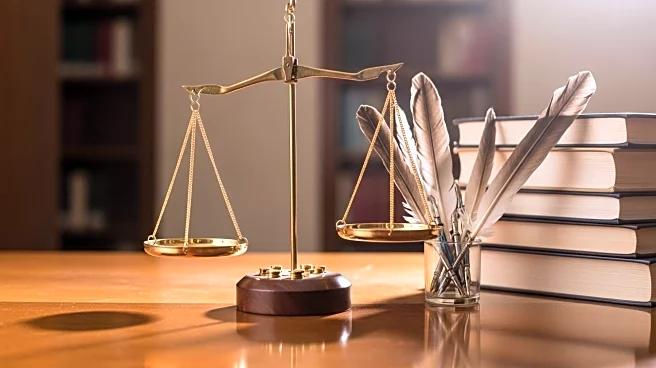What's Happening?
Anthropic, an AI company, has agreed to pay $1.5 billion to settle a lawsuit alleging it illegally downloaded hundreds of thousands of books from pirate databases to train its language models. The lawsuit, initiated by authors Andrea Bartz, Charles Graeber, and Kirk Wallace Johnson, was allowed to proceed as a class action by U.S. District Judge William Alsup. The settlement covers approximately 500,000 works, with each eligible to receive about $3,000. The agreement requires Anthropic to destroy all pirated copies used in its training process. This case marks a significant precedent in the AI industry, emphasizing the importance of adhering to copyright laws.
Why It's Important?
The settlement is a landmark in U.S. copyright litigation, setting a precedent for AI companies regarding the use of copyrighted materials. It underscores the necessity for AI firms to respect intellectual property rights, potentially influencing future industry practices. Authors and publishers stand to benefit from the financial compensation, which addresses the unauthorized use of their works. The case highlights the growing tension between AI development and copyright protection, prompting discussions on ethical AI training practices. The Authors Guild and the Association of American Publishers view the settlement as a victory for copyright holders, reinforcing the message that AI companies must comply with legal standards.
What's Next?
A hearing is scheduled for September 8 to seek preliminary approval of the settlement from Judge Alsup, with final approval expected next year. The parties involved are working to finalize the list of works included in the agreement, due by October 10. Authors and publishers will be able to search a database to verify if their works are covered. Notices will be sent to class members this fall, detailing how to file claims. Authors have the option to opt out and pursue individual lawsuits. The settlement only covers past claims, leaving room for future legal actions against Anthropic for post-August 2025 conduct.
Beyond the Headlines
The case raises broader questions about the ethical use of copyrighted materials in AI training. It may lead to increased scrutiny and regulation of AI companies' practices, potentially affecting innovation and development in the sector. The establishment of an Author-Publisher Working Group aims to ensure fair distribution of settlement funds, reflecting ongoing efforts to balance interests between authors and publishers. This development could influence future legal frameworks governing AI and intellectual property, encouraging more transparent and responsible AI practices.










